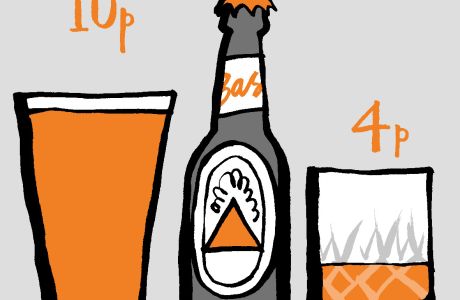Adjuncts Vs. Additives
If you go on a tour of any brewery, anywhere in the world, one of the first sentences out of the guides mouth will be “To make beer you just need four ingredients, water, malted barley, hops, and yeast”. I am guilty of saying exactly this when explaining the brewing process to people, but, it’s not true, not even close.
Illustrations by Christine Jopling.

- Brewhouse Adjuncts
- Additives and Processing Aids
- Conclusions
-

Yes, the Reinheitsgebot of 1516, also known as the German purity law, dictates that beer is made of water, malt and hops, but just like we discovered that beer requires yeast to ferment (microorganisms hadn’t been discovered when this law was laid down), we may need a bit more than just those basics. In recent years’ brewers have discovered that a wide range of lotions, potions and powders can be used in beer to enhance it and make the end product better.
Some of these have been, in my opinion, unfairly derided and subsequently spoken of in cloak and dagger terms, with brewers presenting a front of using the basic ingredients, whilst dosing up on Murphy’s finest behind closed doors. This brewing equivalent of hiding your sins from God, whilst biting down on a brandy soused Ortolan, is unhelpful in allowing consumers to make informed choices about which beer to choose, and why some of these additions are not as bad as they may think, and others they may choose to avoid.
-
Join CAMRA for unlimited access Join CAMRA
-
Brewhouse Adjuncts
-
-
-
Additives and Processing Aids
-
-
-
-
-
-
-
Conclusions
-
“What I hope to show is that these are not always unwanted and unholy things that must be exorcised from the brewery, but to demystify them, and allow you to decide where you stand on the great additive and adjunct debate.”






